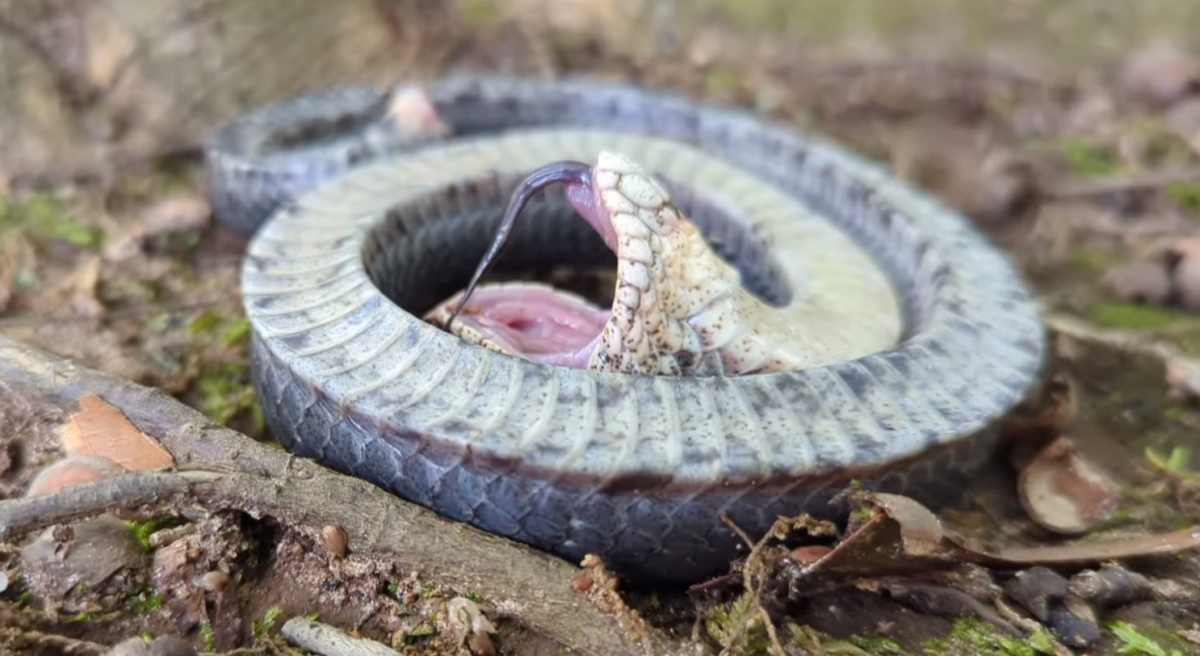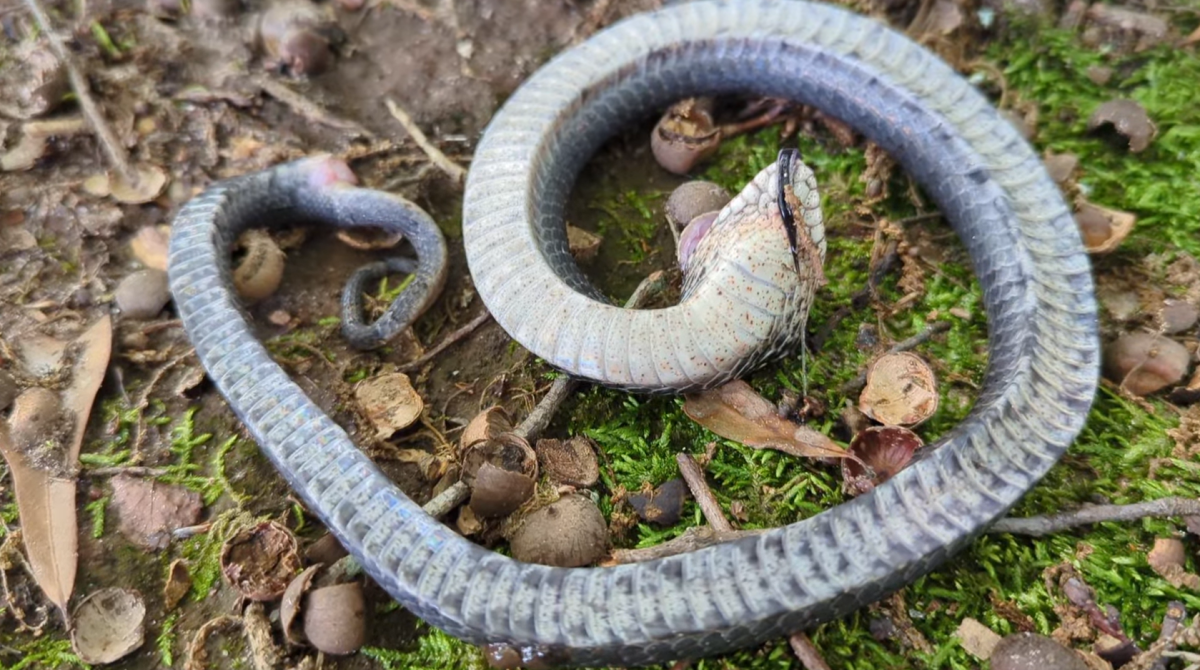A snake in Georgia has surprised with the acting skills it put on show when it was feeling threatened.
Snake catcher James Dowling of Houston County Georgia Snake Removal & Relocations caught the "impressive theatrics" on camera on May 21, in a video that has been viewed more than 230,000 times on Facebook.
"The snake is a eastern hognose snake, a native species in Georgia, USA," Dowling told Newsweek. "As a defensive mechanism these snakes often fake their death in hopes that whatever threat is present will lose interest and move along. Once the coast is clear, they'll right themselves back up and continue on their way."

This theatrical stunt is scientifically known as thanatosis. The eastern hognose, also known as a puff adder, is well known for this behavior, although it can also occasionally be seen in other snake species.
The performance goes as such: the snake will writhe around madly for a few seconds then lie with its belly up, its mouth hanging open and its tongue dramatically lolling out to the side.
"It's based on the idea that most animals don't eat carrion," Mark O'Shea, a professor of herpetology at the University of Wolverhampton in the U.K., previously told Newsweek. "So if you're dead, that potential predator might leave you alone." Herpetology is the branch of zoology concerned with reptiles and amphibians.
According to the textbook Herpetology, this behavior is often accompanied by defecation, which you can see if you look closely at the snake in Dowling's video. As the snake wriggles and writhes, the excrement ends up being smeared across its scaly body. The point of this additional flourish is unclear, but scientists think that it might have something to do with the snakes' diet.
Eastern hognoses have a particular penchant for toads, which carry a defensive toxin to which the snakes are immune, according to the University of Georgia. However, some of this toxin can end up in the snake's feces, potentially acting as an additional chemical defense to ward off predators.

As impressive as this dramatic display is, it is important not to purposefully disturb a hognose snake should you see one in the wild. "When a hognose does this, they are literally in fear for their life," commented one user. "It causes an extreme amount of stress to the snake which causes it to expend a lot of energy."
Eastern hognoses can, as their name suggests, be found across the eastern half of the United States and are easily identified by their upturned snouts. They grow to lengths of around 4 feet long and are not dangerous to humans.
"While classified as mildly venomous, its toxin is prey specific and not typically harmful to humans," Dowling said. "They're also very reluctant to actually bite, so I'm in no danger even if it was to bite me.
"Like any other snake, as long as you leave them alone and give a bit of space, you're in no harm's way."
Uncommon Knowledge
Newsweek is committed to challenging conventional wisdom and finding connections in the search for common ground.
Newsweek is committed to challenging conventional wisdom and finding connections in the search for common ground.
About the writer
Pandora Dewan is a Senior Science Reporter at Newsweek based in London, UK. Her focus is reporting on science, health ... Read more





